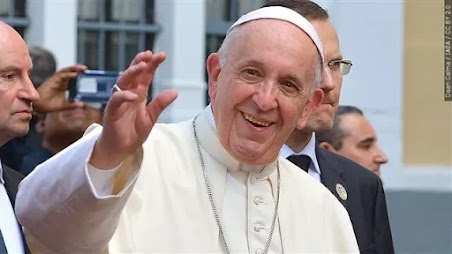
Giriş
Kuzey Amerika ülkesi Kanada'da, 2015, 2019 ve 2021 federal seçimlerini kazanarak partisi Kanada Liberal Partisi'ni (LPC) üç dönem üstüste iktidara taşıyan popüler Başbakan Justin Trudeau'nun beklenmedik istifası sonrasında hareketlenen siyaset sahnesi, 28 Nisan'da yapılacak seçimlerle daha da hareketlenecek. Bu yazıda, 2025 Kanada federal seçimlerini analiz edeceğim. Ancak bunun öncesinde gelişmişlik düzeyi hayli yüksek olan Kanada'ya dair bazı verileri ve bilgileri de sizlerle paylaşacağım.
Rakamlarla ve Bilgilerle Kanada
Yaklaşık 10 milyon kilometrekarelik devasa yüzölçümüyle Rusya Federasyonu'ndan sonra dünyanın en geniş ikinci ülkesi olan Kanada, 40 milyon civarındaki nüfusuyla bu alanda ise dünyada 38. sıradadır. Çok kalabalık bir nüfusu olmamasına karşın Uluslararası Para Fonu-IMF'nin 2025 verilerine göre 2,23 trilyon dolarlık ekonomisiyle dünyanın en büyük 9. ekonomisi (ABD, Çin, Almanya, Hindistan, Japonya, Birleşik Krallık, Fransa ve İtalya'dan sonra) durumundadır. Kanada, 63.000 doların üzerindeki kişi başına düşen yıllık gayrisafi milli hasıla oranıyla da dünyanın en zengin 22. halkına sahip gelişmiş bir devlettir. Nitekim Birleşmiş Milletler'in hazırladığı İnsani Gelişmişlik Endeksi'nde de, Kanada, çok yüksek bir puanla 18. sıradadır.
Dünyada Kanada
Uluslararası arenada Birleşmiş Milletler'in yanı sıra NATO, G7, G20, OECD, Dünya Bankası (WB), Uluslararası Para Fonu (IMF), İngiliz Uluslar Topluluğu (Commonwealth), Amerikan Devletleri Örgütü, Arktik Konseyi, AGİT (OSCE), Beş Göz (Five Eyes) ve Uluslararası Frankofoni Örgütü gibi çok önemli platformlarda temsil edilen Kanada, barışçıl ve demokratik özellikleriyle bilinen ve nüfusa ihtiyacı nedeniyle göçmenler konusunda görece ılımlı politikalar uygulayan bir devlettir. İngiliz siyasal geleneğinin etkisiyle 1867'den beri demokratik seçimler düzenleyen Kanada, ayrıca halen Birleşik Krallık monarkını (Kral III. Charles) kendi sembolik devlet başkanı kabul eden az sayıdaki devletten birisidir.
Kanada haritası
Kanada, ayrıca parlamenter demokratik sistemle yönetilmekte olan federal bir devlet hüviyetindedir. Toplam 10 eyalete (province) bölünmüş olan Federal Kanada'nın eyaletleri şunlardır: Ontario, Quebec, Manitoba, British Columbia, Saskatchewan, Alberta, Newfoundland and Labrador, Nova Scotia, New Brunswick ve Prince Edward Island. Bunların yanında Kanada ve 3 farklı bölgeye (territory) de ayrılmaktadır ki, bunlar da; Kuzeybatı Bölgesi, Yukon ve Nunavut şeklindedir. Ülkenin yasama organı olan Federal Parlamento, Avam Kamarası (House of Commons) ve Senato’dan (Senate) müteşekkil olup, Birleşik Krallık'ta uygulanan Westminster modeline dayalı iki kamaralı bir meclistir. Avam Kamarası'nın üyeleri tek turlu dar bölge seçim sistemiyle belirlenmekte olup, ülkenin nüfusuna oranla oluşturulan 338 seçim bölgesinin her birinden bir milletvekili seçilerek görev yapmaktadır. Avam Kamarası'nda en çok milletvekili bulunan siyasi partinin lideri, Genel Vali tarafından Başbakan olarak atanır ve Federal Bakanlar Kurulu’nu kurmakla görevlendirilir. Bu şekilde, tek parti, koalisyon veya azınlık hükümeti formülünce Kanada'da hükümetler demokratik olarak kurulur ve güvenoyu alamamaları durumunda düşürülebilir.

Quebec ayrılıkçı hareketi yakın zamana kadar Kanada'yı çok zorluyordu
Kanada'nın en önemli siyasi sorunu ise Fransızca konuşan nüfusun yoğun olarak yaşadığı Quebec bölgesindeki ayrılıkçı harekettir. Bu konuda demokratik yöntemler uygulayan Kanada, 1980 ve 1995'te iki defa Quebec bölgesinde bağımsızlık referandumu düzenlenmesine olanak sağlamış ve özellikle 1995 referandumunda Quebec halkının yüzde 50,6'sının desteğiyle bölünmekten ucuz kurtulmuştur. Fransızca dili ve Fransa ile gönül bağları olan bölge halkının eğilimleri nedeniyle bu sorunun ilerleyen yıllarda da depreşmesi mümkün gözükmektedir.
2025 Kanada Federal Seçimleri
Kanada'da demokratik seçimlerin yapıldığı 1867 tarihinden beri, iktidar, Liberaller (Kanada Liberal Partisi-LPC) ile Muhafazakârlar (önceden Kanada İlerici Muhafazakâr Parti-PC, 2003'ten beri Kanada Muhafazakâr Partisi-CPC). Nitekim ülkede Quebec Bloku (Bloc Québécois-BQ), Yeni Demokratik Parti (NPD), Kanada Yeşiller Partisi ve Kanada Halk Partisi gibi başka siyasal oluşumlar olsa da, iktidarın bu iki partiden birine gitmesi ülkenin siyasal geleneği haline gelmiştir.
Mark Carney
Son yıllara bakıldığında; 2006-2015 döneminde üç federal seçim kazanarak Muhafazakârlar adına uzun süre iktidarda kalan Stephen Harper, sonrasında ise 2015-2025 döneminde yine üç seçim kazanarak Liberalleri iktidarda tutan Justin Trudeau gibi Başbakanlar tarafından yönetilen Kanada, Trudeau'nun istifasının ardından ise Liberal Parti'nin başına geçen Mark Carney Başbakanlığında seçime gitmektedir. Bu sene Mart ayından Başbakanlık koltuğuna oturan Carney, yakın geçmişte Kanada Merkez Bankası ve İngiltere Merkez Bankası’nın guvernörü olarak görev yapan 1965 doğumlu başarılı bir ekonomist ve yetenekli bir teknokrattır. Carney, Başbakan olduktan sonra da söylemleriyle büyük beğeni toplamış ve Kanada'yı ABD topraklarına katmaktan söz eden ve Kanada da dahil olmak üzere ABD'nin dost ve müttefiklerine bile gümrük tarifeleri uygulayan ABD Başkanı Donald Trump'a yönelik muhalefetiyle ülkesinde kısa sürede çok popüler hale gelmiştir. Güncel anketler, merkezde siyaset yapan ve liberal demokratik değerleri savunan Liberallerin Carney liderliğinde yüzde 42-44 civarında bir oyla seçimi birinci sırada tamamlayarak yeni hükümeti kuracağını göstermektedir.

Pierre Poilievre
Ancak Kanada Liberal Partisi (LPC) ile birlikte ülkenin iki köklü partisinden biri olan Kanada Muhafazakâr Partisi (CPC) de iktidarı kaybettikleri 2015’ten sonra ilk kez seçimlere bu kadar iddialı hazırlanmaktadır. 2022’den beri partinin lideri ve ana muhalefet lideri olan Pierre Poilievre, Trudeau’yu anımsatan genç ve karizmatik lider profiliyle anketlerde oldukça başarılı bir performans sergilemektedir. Genelde “popülist” bir siyasetçi olmakla eleştirilen ve sağ çizgide siyaset yapan Poilievre, özellikle ekonomik sorunlar üzerinden Liberal hükümeti yıpratmayı başarmaktadır. Lakin Başbakan Mark Carney'nin son dönemdeki popülaritesi ve Trump'a yönelik antipati nedeniyle, Poilievre'in bu seçimde Başbakan olması beklenmemektedir. Aktüel bazı anketler, Muhafazakârların bu seçimde yüzde 37-40 düzeyinde kalacaklarını ve Liberallere geçileceklerini göstermektedir.
Jagmeet Singh
Ülkedeki diğer partilerin çok büyük oy oranları olmayıp, anketler, yalnızca Sih inancından olan Hint asıllı karizmatik lideri Jagmeet Singh sayesinde merkez sol çizgideki Yeni Demokratik Parti'nin (NPD) yüzde 10 civarında oy alabileceğini göstermektedir. Yine Yves-François Blanchet liderliğindeki Quebec Bloku'nun da yüzde 5-7 arasında bir oyla seçimde kısmen boy göstermesi beklenmektedir. Ancak bu durum, seçimin Muhafazakârlar ve Liberaller arasında geçeceği gerçeğini değiştirmemektedir.
Sonuç
Sonuç olarak, 2025 Kanada federal seçimleri, demokrasinin faziletlerinin görüleceği ılıman bir iklimde geçecek olup, büyük ihtimalle Mark Carney liderliğindeki Liberallerin zaferiyle sonuçlanacaktır. Bunun nedeni ise, Kanada'nın ekonomik seviyesinin halen gayet iyi düzeyde olup, Liberal Başbakan Mark Carney'nin de Trump'la atışarak seçmenin gönlünde taht kurmayı başarması olarak belirtilebilir.
Kapak fotoğrafı: Yeni Demokratik Parti lideri Jagmeet Singh, Kanada Liberal Partisi lideri ve Başbakan Mark Carney ve Kanada Muhafazakâr Partisi lideri Pierre Poilievre
Prof. Dr. Ozan ÖRMECİ

















































